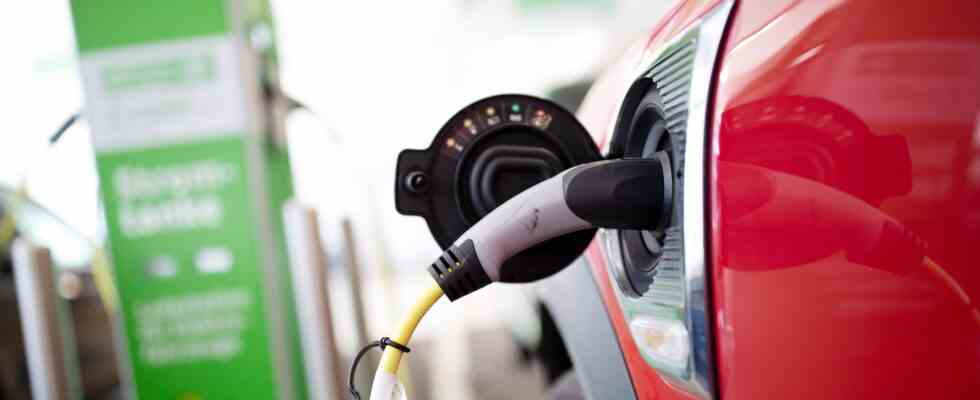As of: 01/10/2023 8:03 p.m
The federal government has some hope in electric cars. A top round in the Chancellery has now confirmed the goal of 15 million by 2030. But there are problems with the charging infrastructure.
The participants in the top round on mobility in the Chancellery reaffirmed the federal government’s goal of at least 15 million fully electric cars on Germany’s roads by 2030. Previously there had been criticism of the pace.
“The participants agreed that a rapid ramp-up of e-mobility is necessary in order to achieve the climate targets in transport,” explained government spokesman Steffen Hebestreit in a written statement after the meeting.
High energy prices were also discussed
In addition to Chancellor Olaf Scholz (SPD), several ministers and representatives of the car and mobility industry, employees, science, states and municipalities took part in the meeting of the “Strategy Platform Transformation of the Automotive and Mobility Industry”.
Only after the meeting did the federal government publish the exact list of participants. Organizations like Lobbycontrol had criticized the strong participation of the car industry. There was also criticism from representatives of the railway or bicycle industry that they were not invited.
According to Hebestreit, topics at the summit meeting included the expansion of the e-charging infrastructure, the tightened Euro 7 emissions standard, but also the high energy prices in Europe.
The transport sector lags far behind climate targets
According to Hebestreit, the discussion focused on climate and environmental protection, the digitization of vehicles, the networking of different means of transport and the resilience of supply chains. According to the announcement, an expert advisory board on climate protection in mobility is to develop further options “soon” for how the transport sector can contribute to achieving the 2030 climate target. By then, Germany should emit 65 percent less greenhouse gases than in 1990.
The transport sector lags considerably behind here. The federal government referred to the “master plan” presented in the autumn for the expansion of the charging network for electric cars. “When it comes to setting up and operating the charging infrastructure, the energy and automotive industries are now primarily required,” says Hebestreit. The truck charging infrastructure is also to be advanced.
Criticism: Charging infrastructure not yet sufficient
“We are clearly behind schedule on all of the key targets that the federal government has set itself,” said IG Metall boss Jörg Hofmann before the meeting Deutschlandfunk criticized. Citizens are still cautious when purchasing electric cars. From his point of view, this is mainly due to the insufficient charging infrastructure, which represents a major obstacle.
Charging infrastructure must also be created where it is really needed, such as in the countryside, and not just where it is worthwhile. The IG Metall chairman spoke of hesitancy in the automotive industry and of plans that politicians had set themselves.
Criticism from bicycle and rail associations on the organization of the mobility summit in Berlin
Oliver Sallet, ARD Berlin, daily news at 8:00 p.m., January 10, 2023
Demand slowed down further
The management consultancy Deloitte had previously warned that the framework conditions for a switch to climate-friendly cars in Germany had deteriorated. On the one hand, higher interest rates and inflation, in particular rising costs for batteries and electricity, as well as the low level of government subsidies, weighed on demand.
On the other hand, according to Deloitte, the still incomplete charging infrastructure will remain a brake. According to a recent survey by Deloitte, only 16 percent of consumers in this country want to buy an electric car, which is hardly more than a year ago.

